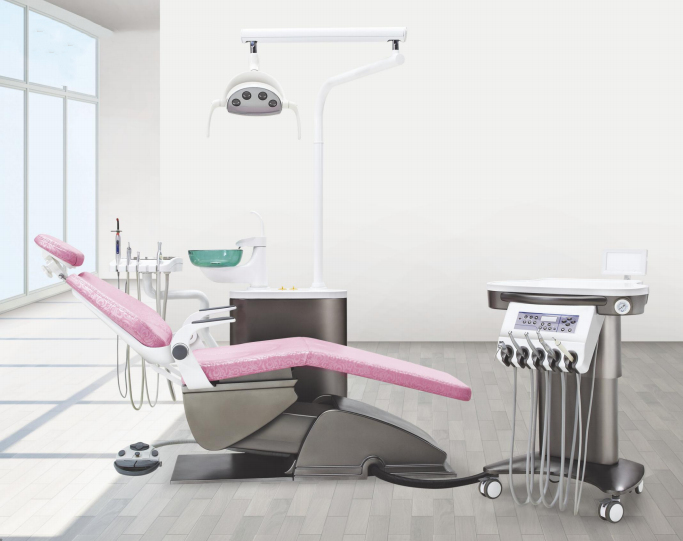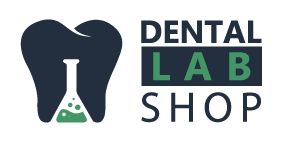Blog
Essential Equipment Supplies for Dental Clinic Setup

Introduction
Setting up a dental clinic is a significant endeavor that requires careful planning and investment in the right equipment supplies. Dental professionals need a range of tools and devices to provide top-notch oral care to their patients. In this article, we will explore the essential equipment supplies required for a dental clinic setup, including dental autoclave machines, handpieces, curing lights, teeth whitening systems, surgical implant micro motors, dental chairs, intraoral cameras, dental scalers, endodontic motors, dental suction systems, dental loupes, air abrasion units, digital radiography equipment, x-ray sensors, and chairside milling unit integrated with digital impression system(intraoral scanner).
Essential Dental Equipment List
- Dental Autoclave Machine
A dental autoclave machine is an indispensable piece of equipment in a dental clinic. It ensures the sterilization of dental instruments and prevents the spread of infections. These machines use high-pressure steam to kill bacteria, viruses, and other pathogens on dental tools. Ensuring the safety and health of patients should always be a top priority in any dental practice.
- Handpieces
Handpieces are essential tools for dental procedures. High-speed handpieces are used for drilling and cutting, while low-speed handpieces are employed for polishing and finishing dental work. Investing in quality handpieces ensures the precision and efficiency of dental procedures.
- Curing Lights
Curing lights are crucial for the successful bonding of dental materials like composites and adhesives. LED curing lights are commonly used in dental clinics as they provide quick and effective curing of dental restorations, helping to reduce chair time and enhance patient comfort.
- Teeth Whitening Systems
Teeth whitening has become increasingly popular among dental patients. Dental clinics need effective teeth whitening systems to meet this demand. These systems use various methods, such as bleaching gels and laser technology, to achieve brighter smiles for patients.
- Surgical Implant Micro Motors
For dental clinics offering implant procedures, surgical implant micro motors are a must-have. These motors provide the precision and control required for implant placement, ensuring successful outcomes for patients.
- Dental Chair
The dental chair is where patients spend the most time during their appointments. It should be comfortable, adjustable, and equipped with essential features like reclining and headrest adjustment. A comfortable dental chair enhances the overall patient experience.
- Intraoral Camera
Intraoral cameras are used to capture detailed images of a patient’s oral cavity. These images help in diagnosis, treatment planning, and patient education. Intraoral cameras also make it easier for patients to understand their dental conditions.
- Dental Scaler
Dental scalers are used for removing tartar and plaque from teeth during cleanings and periodontal procedures. They are essential for maintaining good oral hygiene and preventing gum disease.
- Endodontic Motor
Endodontic motors are used in root canal treatments to precisely shape and clean the root canals. These motors are equipped with various attachments and settings to accommodate different treatment scenarios.
- Dental Suction System
A dental suction system helps in maintaining a clean and dry oral environment during procedures. It removes excess saliva, blood, and debris, ensuring better visibility and infection control.
- Dental Loupes
Dental loupes are magnifying glasses worn by dentists to enhance their vision and precision during procedures. They reduce eye strain and improve the accuracy of dental work. The primary purpose of dental loupes is to provide magnification, enhancing the practitioner’s ability to see minute details. Common magnification levels range from 2x to 8x, with the choice depending on the specific needs of the practitioner. Dental loupes promote better ergonomics by allowing clinicians to maintain an upright posture and reduce the need to hunch over patients
- Air Abrasion Unit
Air abrasion units are used for minimally invasive dental procedures. They use a stream of abrasive particles to remove decay and prepare teeth for restorations, offering a conservative alternative to traditional drilling. Air abrasion is a minimally invasive technique that preserves more of the healthy tooth structure. It allows for precise removal of decay while leaving surrounding enamel intact, promoting better long-term tooth health.
- Digital Radiography Equipment and X-Ray Sensors
Digital radiography equipment and x-ray sensors are essential for diagnosing dental issues. They provide detailed images with minimal radiation exposure to patients, making them a safer and more efficient option compared to traditional film-based radiography. Investing in modern dental technology not only improves the quality of care but also enhances the patient experience. Digital impressions, 3D imaging, and laser dentistry can make procedures more efficient and less invasive.
- Chairside Milling Unit and Intraoral Scanner Digital Impression System
Chairside milling units are used in dental offices to fabricate dental restorations quickly and accurately. The unit consists of a milling machine, a computer, and a 3D intraoral scanner. The 3D intraoral scanner uses sensors and lasers to capture the patient’s teeth and soft tissue and create an exact three-dimensional impression, later send it to the milling machine which fabricates the restoration out of a block of material.
Conclusion
A well-equipped dental clinic is essential for providing high-quality oral care and ensuring patient satisfaction. Investing in the right equipment supplies, including dental autoclave machines, handpieces, curing lights, teeth whitening systems, surgical implant micro motors, dental chairs, intraoral cameras, dental scalers, endodontic motors, digital impression intraora scanner , chairside milling machine, dental suction systems, dental loupes, air abrasion units, digital radiography equipment, and x-ray sensors, is crucial for a successful dental practice. By prioritizing patient safety and comfort and staying up-to-date with the latest technology, dental clinics can thrive and serve their communities effectively.
